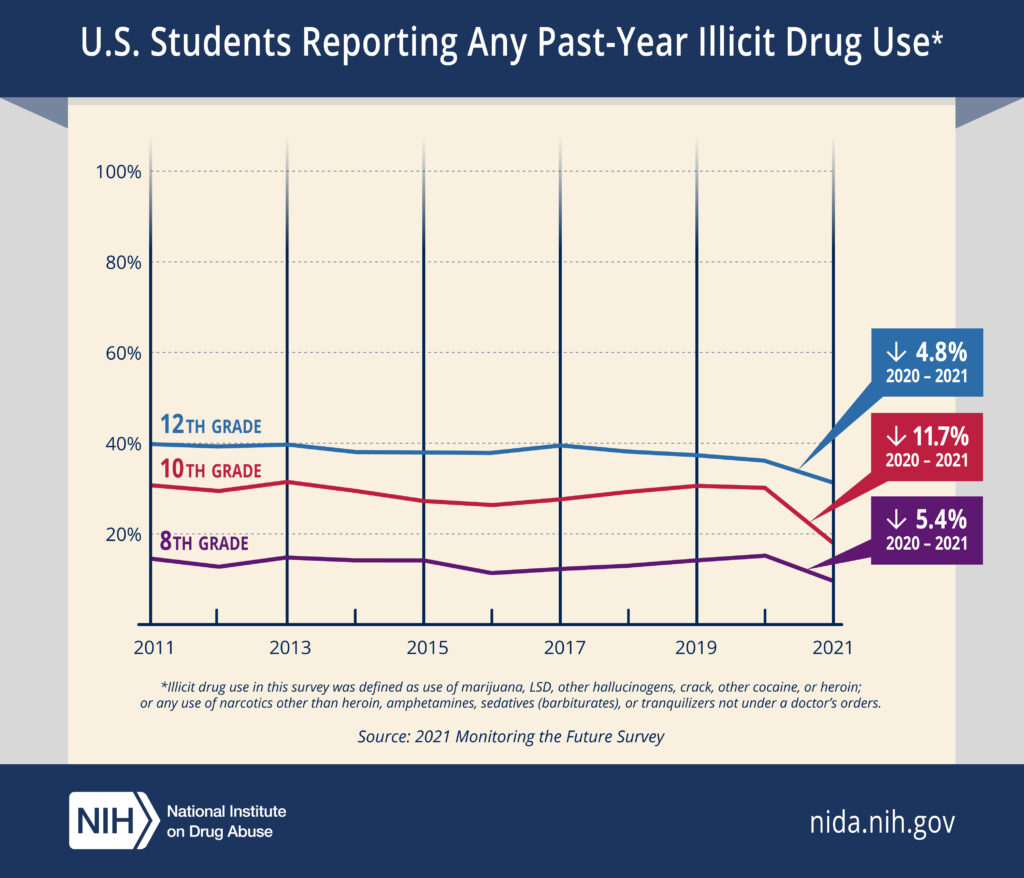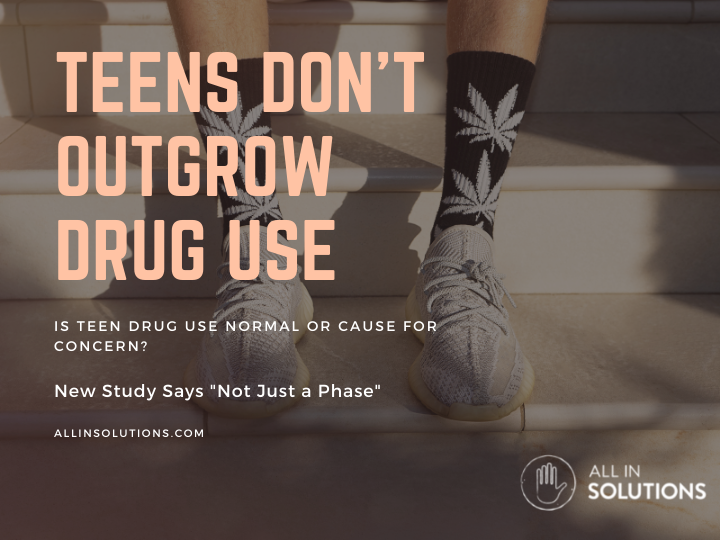Substance Abuse in Teens: Causes, Signs, and What to Do
Teens who use substances can have a significant effect on their health as well as well-being. In the American Academy of Pediatrics (AAP) in a cooperative arrangement with the Centers for Disease Control and Prevention (CDC) created an outline for implementing screening for substance use in pediatric practices that can help pediatricians deal with issues with substance use. The AAP recommends screening for drug use among children starting at the age of 9.
Reasons for Teens Using Drugs
There are many factors that can lead to the use of a teen's drug and abuse. Initial use typically occurs in settings that have easy access to substances like cigarettes and alcohol.
The continued use could be a result of fears or a desire to gain acceptance by society. Teens might feel like they are invincible and aren't aware of the consequences of their choices and thus, they may make dangerous decisions when using substances.
Drug use can cause dependence on drugs, severe impairment, death, and illness. The health risks of using commonly-used drugs include:
It's likely that you'll have many conversations with your teenager regarding drinking and drug use. Make sure you choose times that are less likely to be interrupted and keep phones off. It's also crucial to know when it's not appropriate to engage in an exchange of words, like when you're upset with your child, or you're not in a position to answer questions, or when your child is drinking or high.
For more information, consult addiction-info.net
What are the Signs of Substance Abuse among teens?
It's likely that you'll have many conversations with your teen regarding the use of alcohol and drugs. Pick times that are unlikely to be interrupted and put away phones. It's important to be aware of when it's not appropriate to engage in conversations, for instance when you're upset with your child, or you're not ready to respond to questions, or when your child is drinking or high.
It's never too late to begin talking with your child about addiction issues. Conversations you have now can assist your child in making better choices for the future.
It's crucial to understand the difference between addiction to drugs and addiction. A lot of teens are addicted to drugs, but they aren't addicts.
Recognizing and preventing substance abuse can stop an issue prior to it even beginning. Setting a positive example and having discussions about the use of drugs can help in the prevention of substance abuse among teenagers.
The indicators used to identify if a teen or adolescent might have an addiction problem are provided in the work of Dr. Ashish Bhatt, MD.
The majority of new users are younger than 18. Experimentation plays a major role in the use of drugs by teens. But, experimentation is an everyday occurrence but even if a teenager has tried alcohol or drugs does not mean they'll be addicted. It is more important to know the reasons why teens might be enticed to take a risk initially.

Dangers of Using Drugs
The majority of people with an addiction began using drugs prior to turning 21. The positive side is that the prevalence of teenage drug use are declining. If you suspect your child is abusing drugs, there are addiction treatment options.
Drinking heavily increases the likelihood of developing addiction in individuals at any age, and the brain of teenagers is more prone to addiction. Engaging teens in discussions about these dangers can help reduce drinking at a young age.
These adverse effects can cause problems getting friends together or feeling comfortable at school. If you're a parent and you notice changes in your child's behavior or has observed evidence of substance abuse it is important to be aware of the risks. The blog article will examine the impact of drugs on academic performance and the ways parents can stop teenagers from using drugs or alcohol.
Major depressive disorder (MDD) is a well-known mental health condition that affects teenagers and young adults. The relationship between teens' use of drugs and depression may create an unending cycle that has grave implications for school performance and social interaction and the rest of a teen's life. Teen substance abuse typically occurs with mental health issues like anxiety, mood and behavioral disorders. Teens seeking treatment for addiction issues should be given a complete evaluation of their health (including psychological health). Research has proven that mental health problems should be treated in tandem to ensure that treatment is effective.4
Teenage drug use can pose a variety of dangers for adolescents in relation to academic issues as well as mental and physical health issues, unhygienic social relations, and even legal involvement. Teen drug use may also have consequences for the child's family, friends and the society.
Those seeking help for drug or alcohol addiction can find resources at drug-addiction-treatment.net
How can we stop teens from Utilizing Drugs?
The environment a teen lives in is a major factor in their likelihood of committing misuse. Teens who have access to alcohol and drugs are more prone to becoming addicted. Access to alcohol and drugs is the greatest threat to teens' substance abuse. Educating for parents and teenagers is crucial. Communication between teens and parents, and safe storage of medications and disposal, could help save children's lives.5
The best method to keep the child you love from taking harmful risk is to substitute them with risk-free ones.
Limits can show your teen you are concerned. The trick is to find the right balance between your desire to control them and their desire to be independent.
Parents and guardians must be aware of their power to influence the growth of their children throughout the teens. Adolescence is a new and exciting stage in family life. The changes required aren't limited to teen parents' relationship with their children. It is recommended that parents take a proactive approach to the difficulties of this stage, specifically those related to the potential of trying to experiment with alcohol and substances. Parents shouldn't be scared to speak directly with their children about their use of drugs regardless of whether they've been through problems with alcohol or drugs themselves. A great resource for how to talk to children about drugs is Parents The Anti-Drug. Parents are advised to provide explicit, no-use warnings regarding smoking, drugs and alcohol. It is essential for children and teens to be aware that the guidelines and expectations of their parents come from love for their children as well as concern for the health. Parents must also be engaged and show interest in their teenager's peers or social gatherings. Spending time with their teens and setting good example is crucial. Even if issues such as alcohol abuse are already present in the life of the teenager parents and families may be a positive influence on the behavior of their child.

